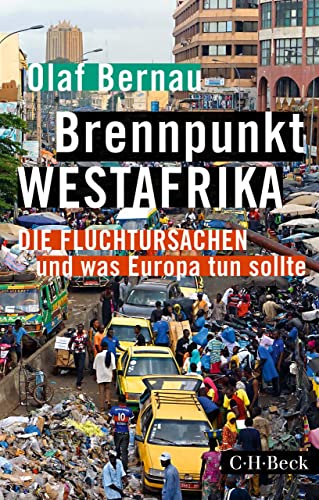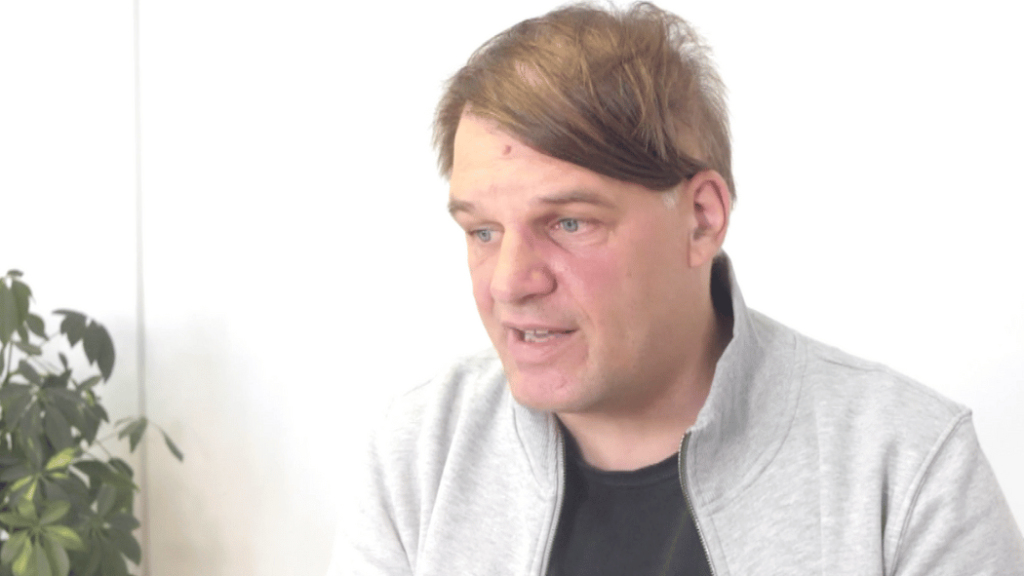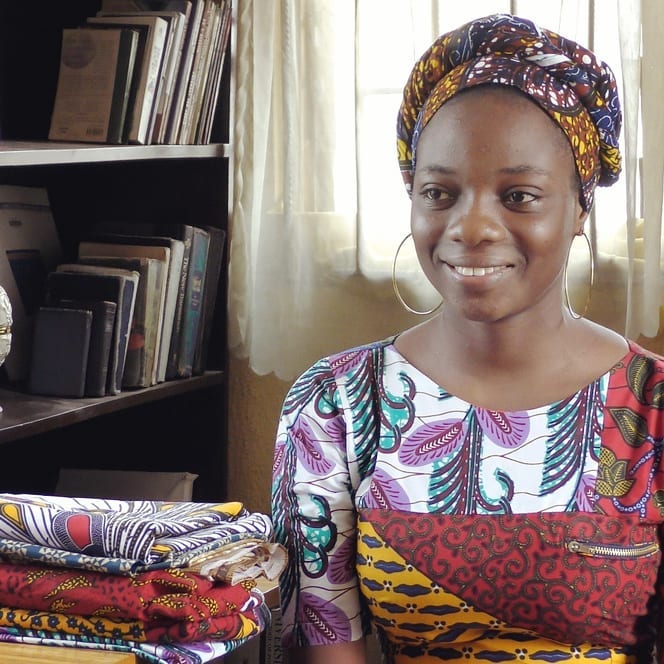About Olaf Bernau:
Olaf Bernau is an activist and sociologist and has since served in different roles as co-founder of a city commune in Bremen, in the anti-racist network “NoLager”, and cofounded the transnational network Afrique-Europe-Interact in 2010. He spends about 4 to 8 weeks yearly in West Africa, especially in Mali and regularly publishes in magazines. He is the author of the 2022 released book titled “The Causes of Flight in West Africa and What Europe should do”.
Joadre: You recently released a book called Brennpunkt Westafrika: Die Fluchtursachen und was Europa tun sollte (Focus West Africa: The causes of flight and what Europe should do). Unfortunately, the book is only available for now in German, but let’s talk about the issues you debate. Why did you work on this book?
Olaf: Since the 80ties, I have worked with refugees and asylum seekers in Germany. Around the end of the 90ties, I worked with people in Nigeria, Cameroon and Togo. Then I worked with an organization called Voice Refugee Forum in East Germany. In 2008 we met people deported from the West in Mali who had self-organized themselves. Then we founded Afrique-Europe Interact and worked to raise awareness about the issues around migration and the living circumstances for migrants and refugees. This book stems from the experience I have gathered over the years.
Olaf Berna’s Book about development in Africa:
Titel: Brennpunkt Westafrika: Die Fluchtursachen und was Europa tun sollte
Language: German
Pages: 317
Release date: March 2022
ISBN-10: 3406782469
Link to Author: Website
Link to book: Amazon
Joadre: What is the aim of wring your book?
Olaf: In Europe, people pretend that they do not have anything to do with these issues; for example, colonialization is long ago, and issues relating to this should have already been resolved. I aimed to start a dialogue between how these issues are perceived in Europe and how it is perceived from the African perspective. And, of course, my perspective is greatly influenced by my consistent work in Africa. That is also why I explicitly allow African experts and voices to be prominent in the book. I want to confront the European readers with the outrage at how Africa is being discussed. I am not only interested in transporting Information I also want to deconstruct stereotypical ideas.
Joadre: So, let us delve into the topics you discuss in your book. First, you focus very much on why industrialization in Africa is where it is now. Can you share some of your findings?
Olaf: In most African countries, in the 1930s and 1970s, industrialization picked up. But look at the numbers now. Africa makes up about 17% of the world’s population but contributes only 2% of the industrialization. Industrialization is a prerequisite for economic development. If you always have to import everything, you pay far too much money, and you are always dependent on others to seal the conditions. In this respect, industrialization is essential. You have to produce what you need every day yourself. You don’t have to produce everything yourself. Of course, there is also a sense of division of labour in that certain countries concentrate on certain aspects. But the current situation focuses almost exclusively on raw materials export from Africa and industrially manufactured products import. This is a structural reason why many African countries economically look as bad as it looks today.
Joadre: In your book, you talk about the self-alienation of some Africans who first had contact with Europeans and how it plays out through generations. Tell us more.
Olaf: I discussed this with my colleagues in Africa, and many, especially a friend who is a contemporary author, said that the people who initially came into contact with colonial power always felt superior to other Africans. Because they thought that they already had more experience and were more knowledgeable since their contact was from the beginning. They feel more enlightened and educated, whatever. I found that interesting but also harmful. For example, people in today’s Senegal, who were already in contact with the French in the 17th century, have always felt that they were better, and it has carried on through the generations. Then another African writer wrote that after the First and second world wars, the soldiers who were forcibly recruited to fight for France and for England risked their lives, and many died. But those who returned felt better than the others because they were once in Europe. This is a process of self-alienation, which was deliberately strengthened, provoked, and maintained by the Europeans, as I described in my book about the French, who made a system of it. Because this inheritance is almost worse than the economic inheritance. Economics can be repaired, but identity and self-esteem issues are complicated.
Joadre: You discussed the positive impact of Thomas Sankara’s politics. Can you expand on that?
Olaf: With Thomas Sankara, it seemed that change was possible. He said, wait a minute, we have to think about ourselves. Thomas Sankara did it in a short time; for example, back then, in Burkina Faso (unnamed from Upper Volta), they achieved independence in the food supply in a short time. Thomas Sankara said it works. It goes in a relatively short time. Because he just tried to empower people. He tried to get the people to believe they could do it themselves. They don’t need Europe, the West, or any people. He said, If we reflect on our strength, cohesion, and old values, then it is possible. That’s why, from my point of view, it was a great catastrophe for West Africa that Thomas Sankara was murdered. And it’s no coincidence that he was murdered. He’s not the only “good guy” who’s been murdered.
Joadre: Was his approach made through what you call the Import-substituting development?
Olaf: Yes. With import-substituting development, it meant precisely that imports be replaced by locally manufacturing these products within the country. And that worked well in many West African countries, at least for daily needs – food, mopeds, medicines, radios, simple handicrafts, etc. Even though big or heavy-duty machinery was not manufactured, it was also planned. There were grand plans for developing a steel, chemical, and electrical industry; everything was planned, but they didn’t get that far. But at least on a fundamental level, one has taken one’s own industrialization steps that the colonial powers deliberately prevented.
Joadre: In your book, you talk about the Structural Adjustment program as a major factor that spearheaded underdevelopment. Can you expand on it?
Olaf: Yes, this did not only affect the African countries but also countries in South America, Asia and Eastern Europe. It was previously due to external causes that caused the nations to fall into debt. They all got into debt at the beginning of the 80s. The price of oil rose, and at the same time, the prices, especially agricultural products, fell. Furthermore, the interest on loans grew, the dollar became stronger, and so the repayment of loans in dollars became more difficult. But it also had to do with the elites, of course, one has to mention at this point. The elites in many African countries had embezzled a lot of money, but on the other hand, people were not well prepared. Take Nigerian, for example, where far too few petroleum dollars were invested in too little infrastructure.
That was really a trap because then Western banks, the western governments said this was now a chance since many African countries were just about to abandon their role – namely to only export raw materials and to import processed industrial products. Many have just started running their own development initiatives. So the West needed a way to ensure that they took their old world role again – delivering raw materials for the needs of the industrializing West. This was done by the so-called Structural Adjustment Programs.
The good free economics with free prices?
The approach was to look at what are these countries have and are best at? They can export raw materials, which are natural resources, so to speak; regulations consist of the countries paying their debts in the first line through exportation, then cutting down on national spending. And that led to the collapse of education and health care. It was also said, for example, that the countries must open their markets so that free trade, termed “the good trade – good free economics with free prices”, can finally take place.
Joadre: You used the Nigerian textile industry as an example in your book.
Olaf: Nigeria had a growing textile industry. At its boom, Nigeria was the third largest textile industry in Africa after Egypt and South Africa. Nigeria still had about 175 textile factories in the 80s. But about 25 years later, there were only a few textile factories, barely a dozen. And that could now be applied to all the products slowly developed in the 1960s and 1970s. All of this has been eliminated from the market by forcing countries to open their markets.
It was argued that the state is not a good company and that services should be privatized as much as possible, like railway lines, but also large companies. But after the privatization, they were streamlined, and some closed. They have ensured that many state-owned companies have been closed and many people have been laid off. Many were close because the West wanted to import their own goods, which were often cheaper due to the strengthened industrialization. In any case, the Structural Adjustment Program created a wave of deindustrialization. On the one hand, it meant that the debts were still being paid for with raw materials, but on the other hand, it meant that they didn’t develop any further.
Joadre: What can we do to change this
Olaf: I think Europe should think about what its role is. The West must recognize its responsibility for the multiple crises in many African countries. The West does not have the solution as it is on the ground. But after these African countries have found their way, the West must support it if it is required and they should be ready for reparation.
Joadre: Thank you for your insight and time to talk with us.
Connect with us, and get our app.
We created our one-stop digital incubator app to bridge knowledge and service discrepancies for African students and Savvy entrepreneurs looking to start a business. Get the app (Android version) here. For IOS users, a web app is available here at https://tribe.joadre.com. Sign up for our newsletter here to get consistent resources via email. If you want to contact us, use our contact form or consult us through the app.
Thank you for reading to the end.
Cheers
Joadre






